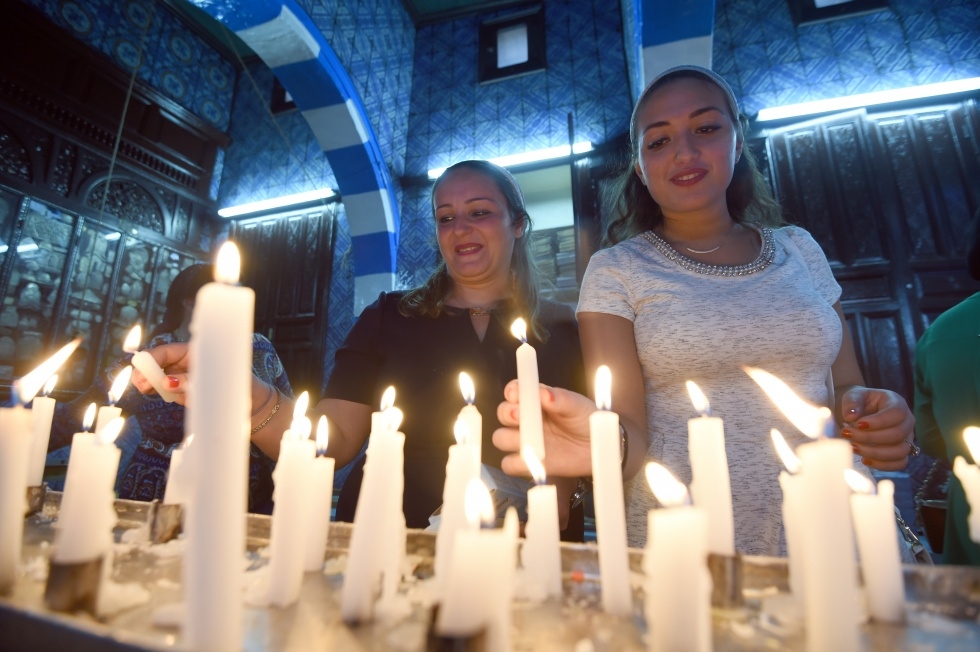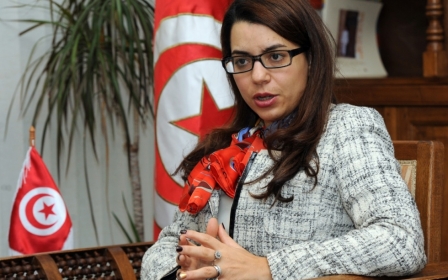Jewish pilgrims visit ancient Tunisia synagogue

Groups of Jewish pilgrims arrived Friday at Africa's oldest synagogue in Tunisia for an annual gathering.
According to legend, the synagogue was founded in 586 BC.
Several dozen pilgrims reached Ghriba on the island of Djerba at around midday (1100 GMT) to say prayers, light candles and leave votive eggs in a cave at the back of the synagogue.
The organisers hope to receive 2,000 people during the three-day event which ends on Sunday, a representative of the small Jewish community in Ghriba, Perez Trabelsi, told AFP.
Police and soldiers deployed along the main road to Ghriba, with checkpoints set up to search vehicles.
Trabelsi said that the authorities have made sure there will be no problems.
"The ambiance is very good. Visitors came here in the morning. They painted eggs and we have an orchestra until 5 [p.m.]," Trabelsi told Tunisia Live.
"We recorded around 700 visitors and we are expecting up to 2,000," noted Trabelsi, who is chair of the synagogue board.
Although Jews are welcome to attend, there are issues with those who enter Tunisia using an Israeli passport.
Like most other countries in the Arab world, the North African nation does not recognise Israel, primarily out of solidarity with the Palestinians.
A group of Tunisian politicians has argued that the deputy interior minister for security, Ridha Sfar, was effectively promoting "normalisation" with Israel by allowing Israelis to visit Tunisia.
Sfar and Tourism Minister Amel Karboul were the target of unsuccessful censure motions on May 9 that were withdrawn only shortly before MPs in the Islamist-dominated parliament were to vote on them.
Karboul has openly supported the entry of tourists regardless of nationality, to boost a key sector of the Tunisian economy battered by the turbulence following its 2011 revolution.
Isaac Weinberg, an Israeli shopkeeper attending this year's pilgrimage, said Tunisia should make a distinction between Israel and its citizens.
Beginning 33 days after the start of the Jewish Passover festival, the Ghriba pilgrimage used to attract 8,000 pilgrims and tourists.
But attendance slumped after a suicide attack claimed by Al-Qaeda killed 21 people in April 2002, most of them German tourists.
Following the attack, and before the revolution that toppled long-time dictator Zine El Abidine Ben Ali, the annual event attracted around 3,000 visitors on average.
Since the 2011 uprising, the number of people taking part in the pilgrimage was reduced to just a few hundred in 2012 and 2013.
"Before I came every year, but this is the first time since the revolution," said Rachele Guetta, a Jewish woman originally from Libya, but lives in Italy now.
"They told me it was dangerous, but that's not true. It's wonderful here, as long as this lasts."
But rumours of insecurity continue to hold some people back, including the wife of Moshe Giat, an Israeli originally from Yemen.
"I came via Paris with my wife. But so many people told us Tunisia was dangerous that she stayed there," he said, adding that the authorities granted him an entry permit on arrival.
The annual pilgrimage to Ghriba is central to the traditions of Tunisia's historic Jewish community, which today numbers around 1,500.
Middle East Eye propose une couverture et une analyse indépendantes et incomparables du Moyen-Orient, de l’Afrique du Nord et d’autres régions du monde. Pour en savoir plus sur la reprise de ce contenu et les frais qui s’appliquent, veuillez remplir ce formulaire [en anglais]. Pour en savoir plus sur MEE, cliquez ici [en anglais].




